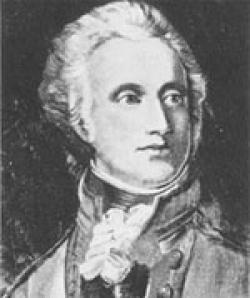
Published date
Lord Charles Somerset, who became the British Governor at the Cape from 1814 to 1826, was born in Badminton England on 12 December 1767. Under his term as governor, Somerset played an important role in British expansion into the Eastern Cape. When the British experienced a serious unemployment problem as a result of the Napoleonic Wars, the British government encouraged people immigrate to the Cape Colony. The first groups of settlers arrived in Table Bay on board the Nautilus and the Chapman on 17 March 1820.
These became known as the '1820 British Settlers'. After their arrival, Lord Somerset encouraged the immigrants to settle in the frontier area of what is now the Eastern Cape. This was in order to consolidate and defend the eastern frontier against the neighbouring Xhosa people, and to provide a boost to the English-speaking population. This period saw one of the largest stages of British settlement in Africa, and approximately 4,000 Settlers arrived in the Cape, in around 60 different parties, between April and June 1820. At the end of 1820 Lord Somerset went on leave to England where he married his second wife and returned to South Africa in 1822.
During his term as governor the Fifth Cape Xhosa War (1818-1819) broke out because of increasing friction between the Cape Colony government and the Xhosa in 1817.Lord Somerset mediated between the Xhosa Chiefs and English settlers in Eastern Cape. In Cape Town he launched the South African Public Library in the Cape through a proclamation in 1818. There also scandals that embarrassed him such as his alleged relationship with his doctor Barry who it is alleged he was a man. He left the Cape Colony in 1826 at the end of his term as governor and was succeeded by Sir Richard Bourke. Lord Somerset died on 8 February 1831.
References
Wallis, F (2000). Nuusdagboek: feite en fratse oor 1000 jaar, (Kaapstad)|Giliomee, H and Mbenga, B 9eds) (2007) "New History of South Africa" (Cape Town)|Kirsten McKenzie, (2004), Scandal in the colonies: Sydney and Cape Town, 1820-1850, (Melbourne), pp.3-4|Anon, Lord Charles Somerset, from Somerset East Accommodation and Tourism Information, [online], Available at www.somerseteasttourism.co.za [Accessed: 09 December 2010]